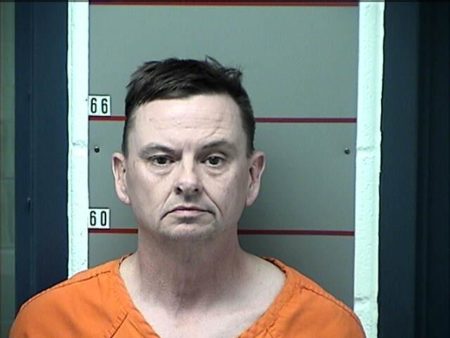
(Leitchfield, KY) – The U.S. Census will end on September 30, 2020 and will not be administered again until 2030. This U.S. Constitutional requirement has financial, political, and community development implications for states and counties, which is why a final advertising push is being made by the Grayson County Census Committee, who was assembled last Fall by Grayson County Judge-Executive Kevin Henderson.
“The GC Census Committee has been diligent in meeting and designing ideas to increase the awareness and participation of the census since October, 2019,” according to Misty Thomas, committee member, who said the counties authentic tagline “It Makes Cents to be Counted” was the creative thinking of committee member Chester Shartzer. The tagline has been touted on banners hanging in Leitchfield, Caneyville, and Clarkson throughout the Spring and Summer as a part of the awareness campaign, that was funded by Grayson County Fiscal Court, Leitchfield City Council, and Clarkson and Caneyville Commissions. Thomas explained that in March she had discovered and applied for a $5,000 grant offered by The Foundation for a Healthy Kentucky that would offset the cities and county’s initial investment. However, due to the pandemic, Thomas was alerted that the grant process would be suspended and possibly eliminated. In August, Thomas learned the grant had been reinstated but the money had to be utilized in a September campaign to encourage census participation. In late August, Thomas was informed that the grant had been awarded and the monies would be distributed to the Grayson County Fiscal Court for payment of the final September campaign. A campaign that will include newspaper, digital billboards, radio, and a heavy emphasis on online social media targeted marketing. Thomas explained clickable links will be showcased on social media accounts that will take people directly to the census to complete, and says it will take less than two minutes to complete the form.
“It’s of the utmost importance that we all participate in the census and that Grayson County has an accurate count this year,” said Thomas, who stressed that it’s about more than the federal dollars that are awarded to Kentucky and the political assignment of representatives for the Commonwealth, but also for community development. “I hear people ask why we don’t have particular businesses in Leitchfield, such as Kroger, Cracker Barrel, or a franchised steak house like Texas Roadhouse. There is an equation in place that gets considered by business developers when they are deciding where to locate next, and part of the equation data includes a county’s demographic characteristics and population density, traffic and parking parameters, and the importance of site visibility to the success of the business. The one aspect of this equation that the citizens of Grayson County can directly impact by responding to the census is the population density. We will not have another opportunity to prove our growth for another decade. If we have 100% participation in the census then we could use this data to help recruit some of those businesses to our area. There are other areas of the equation that will be harder to resolve; however, the population growth is the easiest and is in the hands of the people who will decide to be counted or not,” stressed Thomas.
Thomas explained that the decennial census does not collect an individual’s personal financial information. “If a census worker comes to your home they will have U.S. Census credentials they can provide for your peace of mind, and if they ask for private information about your financials, social security number, or banking information then they are fraudulent so do not share this information,” proclaimed Thomas. “The income levels of the families in Grayson County is not collected during this census count, but is collected by the federal government on a monthly basis who takes a snapshot of three locations in the county monthly through The American Community Survey (ACS) Public Use Microdata Sample (PUMS) and are voluntary surveys. That information is averaged out every year for counties with a population over 60,000 and every five years for counties with a population under 60,000. Grayson County’s annual household income levels were averaged in 2017 and will be averaged out again in 2022. As of 2017, Grayson County had a population of 26.1k people with a median age of 40.2 and a median household income of $35,944. The household income actually dropped in 2016 from $36,129 to $35,944 in 2017,” explained Thomas. “This data is available on various websites who pull information from the U.S. Census and labor statistic websites, and is obtainable through a quick Google search,” said Thomas, who went on to explain that this information also plays a large role in business development for a county.
Another committee member attempting to ensure accurate data is collected is Debbie Childress, GC Alliance Executive Director, who has enlisted the help of census workers to be on-site of the alliance during food distribution days to help clients complete their census. Childress says multiple families have completed their census while on the campus of the alliance for food distribution. The GC Alliance is a direct impact of the census information, as federal grant programs that helps fund the alliance is determined using the census data.
Rounding out the Grayson County Census Committee and working in their respective place of business to bolster census awareness include: Tracy Dennison (Community Action & GC Ministerial Association), Wes Shull (City of Leitchfield), Kindra Jones (GC Extension Cooperative Agency), Chester Shartzer (GC faith community), Lisa Jones (GC Public Library), Kevin Henderson (Judge-Executive), Marla Cantway (Twin Lakes Regional Medical Center), Misty Thomas (media), and Debbie Childress (GC Alliance).
A study by the Project The Project On Government Oversight (POGO) in collaboration with the George Washington Institute of Public Policy says the U.S. Census serves two main purposes for each state. The division of $1.5 trillion that funds over 300 federal programs, such as: Medicaid, direct student loans, highway construction grants, college assistance, and even adoption assistance programs – is decided by each state’s population. The main political purpose of the census is to determine the number of representatives each state gets in Congress; therefore, it is important that every person is counted during the U.S. Census. To take the 2020 U.S. Census click here.








